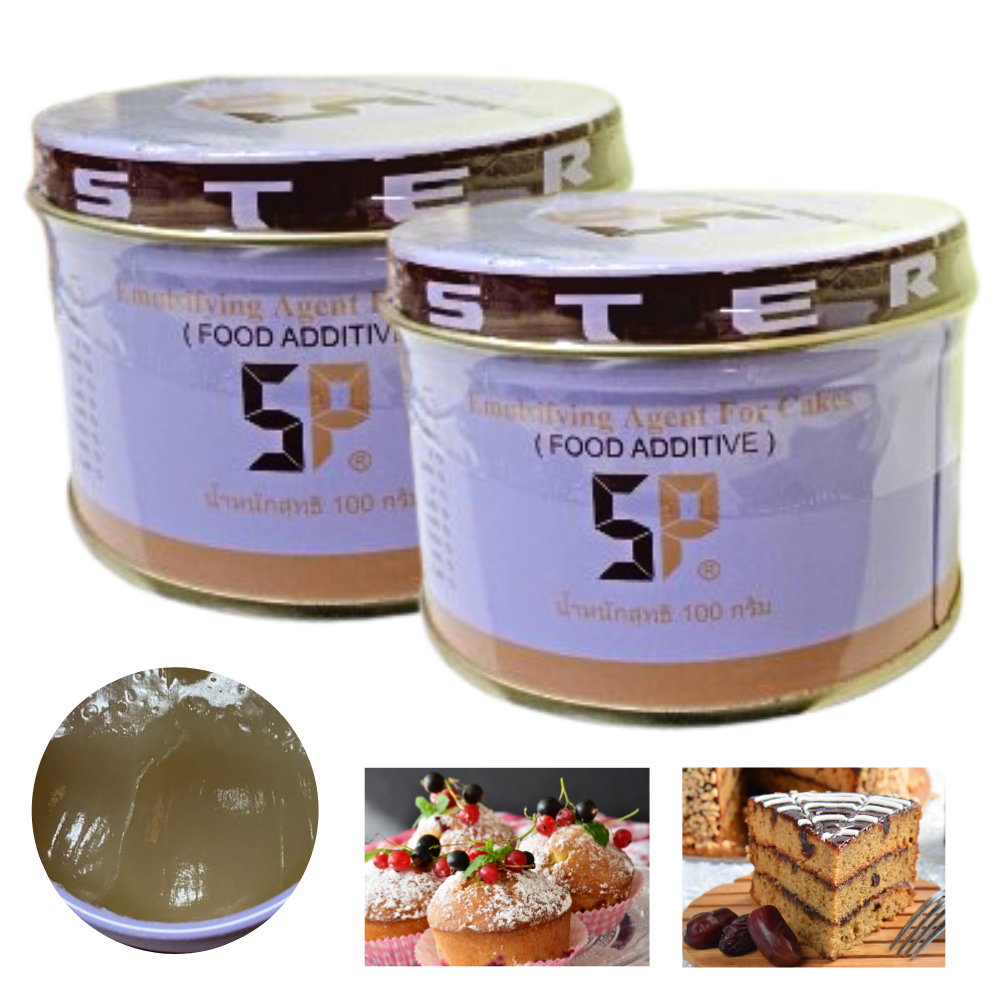Why Every Chef Should Master Emulsifier In Food
Uncover the Benefits of Making Use Of an Emulsifier in Food for Enhanced Culinary Experiences
Emulsifiers are usually neglected yet crucial elements in culinary methods. They help with the mixing of diverse ingredients, boosting both taste and structure. By making certain security, emulsifiers stop the undesirable separation of combinations. Their versatility extends numerous applications, from sauces to dressings. Understanding their function can result in substantial improvements in food top quality and discussion. What details benefits do emulsifiers use that can change daily recipes into extraordinary culinary experiences?
Recognizing Emulsifiers: What They Are and Just how They Work
Emulsifiers play an essential function in the food market, working as representatives that assist in the mixing of water and oil, 2 substances that generally do not blend. These substances possess both hydrophilic (water-attracting) and hydrophobic (oil-attracting) residential or commercial properties, enabling them to maintain mixes by minimizing the surface stress between both stages. Typical emulsifiers include lecithin, mono- and diglycerides, and specific proteins.
When contributed to foodstuff, emulsifiers produce a steady solution, preventing separation and ensuring a consistent appearance - Emulsifier In Food. They are crucial in several applications, ranging from salad dressings and mayonnaise to ice cream and sauces. By maintaining the integrity of mixtures, emulsifiers not just boost the aesthetic appeal of food yet likewise enhance mouthfeel and uniformity. Their capacity to maintain emulsions makes them vital in modern food formula, adding greatly to the high quality and service life of numerous products
The Function of Emulsifiers in Taste Improvement
While commonly overlooked, emulsifiers significantly add to taste enhancement in food products. They play an essential function in enhancing the overall taste experience by guaranteeing that flavor substances are equally dispersed throughout a meal. By supporting solutions, such as sauces or dressings, emulsifiers avoid the separation of oil and water, permitting tastes to combine with each other more efficiently. This uniform distribution not just escalates the taste but likewise guarantees that each bite is consistently flavorful.
Emulsifiers can boost the assumption of specific tastes, making them extra pronounced on the taste. They may interact with specific ingredients, aiding to launch volatile taste substances that contribute to a dish's fragrant account. The usage of emulsifiers can considerably raise the culinary experience, changing basic recipes into complicated and wonderful flavor journeys. Their refined yet impactful duty in taste improvement ought to not be undervalued in the art of cooking.
Emulsifiers and Structure: Developing Creamy and Velvety Dishes
The effect of emulsifiers expands beyond flavor improvement to the domain of texture, where they contribute in creating velvety and silky dishes. By helping with the uniform circulation of fats and water, emulsifiers enable the formation of stable solutions, leading to a lavish mouthfeel. This is specifically apparent in items like mayonnaise, sauces, and dressings, where a smooth, creamy uniformity is preferred.
Emulsifiers such as lecithin and mono- and diglycerides work to reduce surface area tension between ingredients, permitting an unified mix that boosts the sensory experience. The creamy structure attained via emulsification can boost meals, making them much more enticing and delightful. In addition, the ability to create a velvety structure allows chefs to incorporate numerous active ingredients without compromising uniformity, bring about innovative cooking creations. Basically, emulsifiers play a crucial function in transforming average recipes into remarkable cooking experiences through structure enhancement.
Security Issues: How Emulsifiers Prevent Separation
An important element of culinary emulsifiers is their ability to avoid splitting up, making certain that items maintain their designated texture and appearance over time. Emulsifiers work by stabilizing mixes of oil and water, which naturally have a tendency to separate as a result of distinctions in thickness and polarity. By lowering surface stress at the oil-water user interface, emulsifiers facilitate the development of steady solutions, permitting a consistent distribution of ingredients.

Typical Emulsifiers in Cooking and Their Applications
Understanding the different emulsifiers typically used in food preparation reveals their substantial roles in enhancing food structure and stability. Lecithin, originated from egg yolks or soybeans, is widely utilized in mayonnaise and salad dressings, providing a luscious consistency. Mustard, likewise an emulsifier, aids in supporting vinaigrettes while imparting flavor.


An additional popular emulsifier is xanthan gum, regularly made use of in gluten-free baking and sauces for its thickening properties. Guar gum tissue serves a similar function, enhancing the structure of ice creams and milk items.
Mono- and diglycerides, commonly found in refined foods, aid improve service life and preserve structure. Casein, a milk protein, is made use of in cheese-making and luscious sauces, contributing to a smooth browse around this site mouthfeel. Each of these emulsifiers plays a necessary duty in culinary applications, avoiding and guaranteeing desirable appearances splitting up in diverse food products.
Frequently Asked Concerns
Are Emulsifiers Safe for Individuals With Food Allergies?
Emulsifiers can be safe for people with food allergic reactions, depending on the certain emulsifier used. It is important to recognize the resource of the emulsifier, as some may cause allergic reactions in delicate individuals.
Exactly How Do Emulsifiers Impact the Nutritional Material of Food?
Emulsifiers can influence the nutritional material of food by enhancing vitamins and mineral absorption and enhancing appearance. Nonetheless, their presence may additionally dilute particular nutrients, relying on the food matrix, potentially changing general dietary worth.
Can Emulsifiers Be Made Use Of in Vegan Cooking?
Emulsifiers can be properly used in vegan food preparation, giving structure and security to dishes. Plant-based emulsifiers like lecithin, stemmed from soy or sunflower, aid blend active ingredients, enhancing the total top quality of vegan cooking developments.
What Are the Ecological Effects of Emulsifier Production?
The ecological effects of emulsifier production typically consist of deforestation, water pollution, and high energy usage. In addition, some resources of emulsifiers can add to biodiversity loss, elevating concerns about sustainability in food manufacturing practices.
Just How Do Emulsifiers Compare to All-natural Thickeners in Food Preparation?
Emulsifiers offer smoother see it here structures and improved stability compared to natural thickeners, which can give distinct tastes - Emulsifier In Food. While emulsifiers boost mouthfeel and look, all-natural thickeners offer even more health benefits and can add to the recipe's flavor profile
When added to food items, emulsifiers create a secure emulsion, protecting against splitting up and making sure an uniform texture. While commonly ignored, emulsifiers substantially contribute to taste improvement in food products. Understanding the different emulsifiers commonly used in cooking reveals their significant functions in boosting food structure and security. Emulsifiers can be safe for individuals with food allergies, top article depending on the certain emulsifier utilized. Emulsifiers can influence the dietary web content of food by boosting nutrient absorption and improving structure.